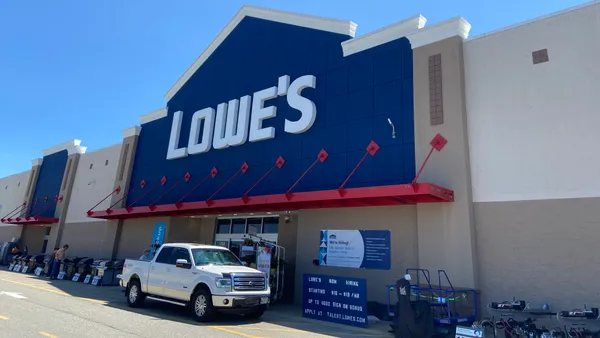Dive Brief:
-
Shares of Ascena Retail Group, owner of Ann Taylor, Maurices, Dress Barn, Lane Bryant and other specialty chains, fell as much as 10% on Tuesday after the retailer reported a disappointing holiday season.
-
Holiday same-store sales fell 3.1%, beating analysts’ expectations for an overall 3.9% decline, according to a note from Cowen & Co. cited by Barron’s. By brand, shares dropped 8.2% at Ann Taylor, 1.8% at Loft, 5.1% at Lane Bryant, 7.1% at Maurices and 4.6% at Dress Barn.
-
The company now expects a Q2 adjusted loss of between 11 cents and 8 cents per share, (badly missing the FactSet consensus expectation cited by MarketWatch for a loss of 3 cents per share) and full year fiscal 2017 non-GAAP earnings in the range of 37 cents to 42 cents per share, (missing the FactSet consensus of 58 cents per share).
Dive Insight:
For the past year or so, Ascena has been offering up a variety of reasons for on-going traffic and sales declines, including unfavorable weather and the November Presidential election. But on Tuesday, president/ CEO David Jaffe didn’t pin the performance on outside forces and kept the outlook fairly dim.
“We were disappointed by our overall holiday performance,” he said in a statement. “Outside of discrete peaks during the holiday season, we experienced stronger than expected store traffic headwinds. As a result, we were forced into a more highly promotional stance in order to move through inventory in the face of softer overall consumer demand. At this juncture, we are positioning our full year outlook assuming that the trend we experienced through holiday continues.”
Ascena has been falling short of analyst expectations for a while now, and in September, its shares neared a 7.5-year low. The retailer ended the first quarter of its fiscal 2017 in December with inventory of $808 million, down 9% from $889 million at the end of the first quarter of fiscal 2016.
Just as The Limited shutters all stores and moves online, the Ascena chains’ holiday woes appear to be part of a problematic trend for specialty apparel chains, especially those based in malls. It’s a tough arena that demands differentiated merchandise and appealing store experiences, according to Shelley E. Kohan, VP of retail consulting at store analytics firm RetailNext. “Of course, the apparel industry overall is over-stored,” she told Retail Dive. “They’re in an industry that is highly competitive.”












